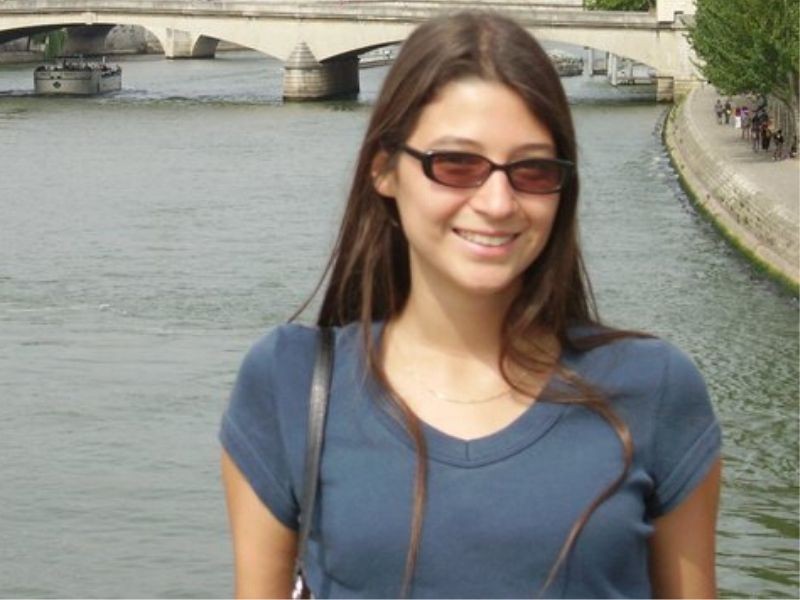She is a mathematics professor at the University of Illinois at Chicago. Her name is Dima Sinapova. She lives in Chicago, having gone to USA in 1999. Her family is also overseas – her parents live in Iowa, her brother is in Boston. They remained separated at Orthodox Easter and celebrated together online – each one in front of their web cameras and with their Easter eggs. “It wasn’t much of a celebration but it was the best we could do,” says Dima Sinapova in an interview for Radio Bulgaria:
“At the moment I am working from home, I am busy with my pursuits in mathematics so I never stopped working despite the state of emergency. My plans for the summer are to come to Bulgaria in August but we shall see how things will turn out. Now, with the emergency measures, I lecture three times a week, and it is all online. I have usually made notes before my online meetings with students. It isn’t the same as at the university. The state of emergency in Chicago is the same as in Bulgaria. The difference is that here you are allowed to go to the parks, though not in groups and with distancing control. Most people who go to the parks are either alone, or in couples or with their families. But the sports grounds are closed. And if there is a gathering of many people or a café or a restaurant is reported open then the police are there immediately. But they do not fine people, only businessmen if they have opened any catering establishment despite the ban. People here are not afraid of law enforcement.
 I am not in contact with many people now, mostly coworkers or the parents when we have parent-student meetings. Most of them say they are very busy with their children, I too am finding I have less free time now than I did before these measures. Besides my job, I have them to tend to at home. Distance learning is not obligatory here but I try to keep up with the classes online, following, approximately the standard 8.30 to 3.30 classes. Taken from the point of view of acquiring knowledge, they now learn more. But socially they apprehend less because they do not have contact with their friends. On the whole everyone here is also complaining about the way things are but they support the closing of schools, though nobody is happy about it.
I am not in contact with many people now, mostly coworkers or the parents when we have parent-student meetings. Most of them say they are very busy with their children, I too am finding I have less free time now than I did before these measures. Besides my job, I have them to tend to at home. Distance learning is not obligatory here but I try to keep up with the classes online, following, approximately the standard 8.30 to 3.30 classes. Taken from the point of view of acquiring knowledge, they now learn more. But socially they apprehend less because they do not have contact with their friends. On the whole everyone here is also complaining about the way things are but they support the closing of schools, though nobody is happy about it.
People in the US are definitely afraid of the infection. I live in a high-rise building right next to the lake in Chicago and most people now prefer to be by themselves when they take the elevator. Even in the lobby the doormen give out masks even though wearing masks is not mandatory. Outside, half of the people have masks on, or a scarf or something else because they are afraid,” says Dima Sinapova. “Here too most people worry about the economy, millions have applied for unemployment benefits in the past weeks. The economic consequences will be with us for a long time after the pandemic is over. But I think that once the restrictions are lifted, social life will go on as before. Probably even more so because after being in isolation for so long everyone will want to go back to face-to-face communication.”
Photos: math.uic.edu and Facebook/Dima SinapovaElena Ganeva-Robles has been living in London for more than 30 years . She was led there by the love of a Peruvian man she met at university in Bulgaria's coastal city Varna. After the fall of the Iron Curtain, the two set their sights on Great Britain,..
Over the past two weeks, fires in Bulgaria have scorched tens of thousands of hectares of trees, damaged dozens of homes in the Strandzha region and charred entire herds. The massive fires in Sakar and Svilengrad alone have destroyed almost 10,000..
The village of Gomotartsi in the region of Vidin has a strange history. It was once located in another place, miles away from where it is now. After a terrible plague struck a large part of its inhabitants, the survivors decided to burn their houses and..
Although the Danube Bridge is currently undergoing repairs on the Bulgarian side, thanks to good coordination, traffic on it has not only not decreased,..
Bulgaria's Nia Parusheva, a pupil from the 26th Secondary School ''Yordan Yovkov'' in Sofia, has won an individual medal for outstanding performance at..

+359 2 9336 661
